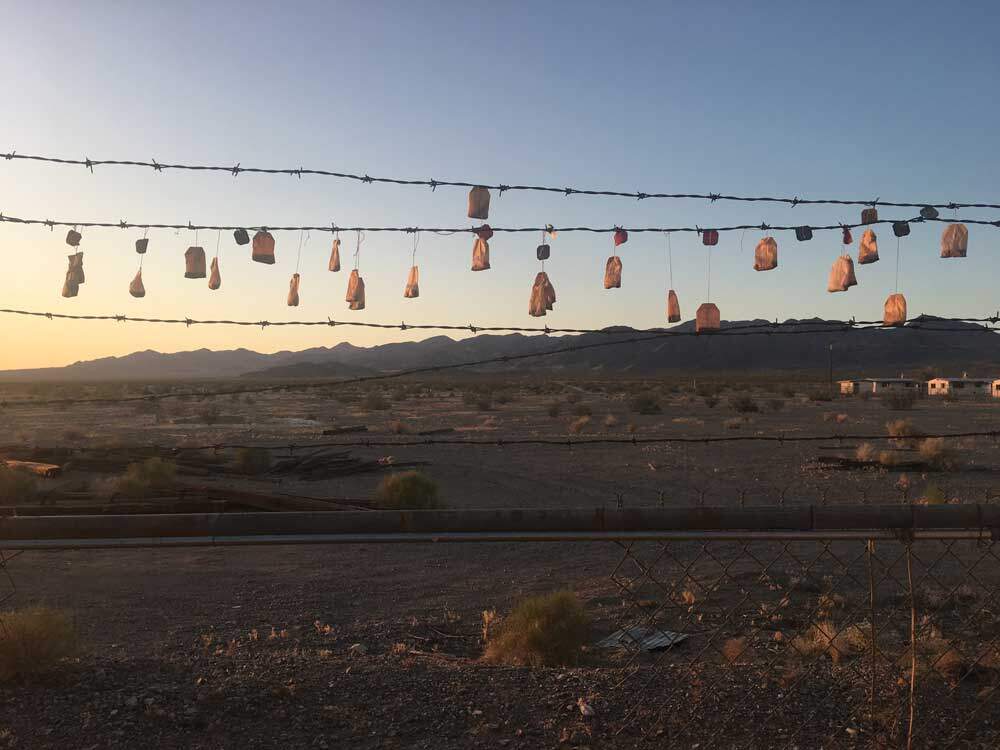Day 16 | “It’s Too Late to be a Pessimist”

Question Set 2, Interview 1: Na.Ru
Has this experience changed or affected your definition of happiness? If so, how?
“I still don’t know what my definition of happiness is. However, it has clarified it a little more. I find my time enjoyable when I can find common ground with the people I am living with.”
Can you rate your current happiness level 1-10, 1 being the lowest, and 10 the highest, and explain why you feel this way?
“I would say 7 or 8. These past few days have been super rough emotionally, but I’m getting some insight and talking about it. I was looking at the art when we went to town and it was making me happy. I started to feel more excited about life and more at peace.”
How do you think we, as in society, can find a balance between sustainable behavior/ development and happiness?
“I think Ostrom’s is a good start. Really communicating with your community.”
Do you think your life and behavior will change after returning from this experiment? Why or why not?
“Yes. It’s a lot easier than I thought to change. It’s even kind of exciting. There are lots and lots of people living this way who are also excited about change.”
Can you tell me anything else about this experience and how this experiment has affected your outlook on sustainable development and happiness?
“So, when I think about sustainability, I mostly think about the possibility of happiness while being sustainable. I think in order to give up the lifestyles we’ve had and practice sustainability, we have to practice gratitude and living within our means, which is manageable and we can cultivate our own happiness. Just basically that there is so much work to do in the world to fight climate change and everything else that intersects with climate change. By having sustainable behavior, I’m able to realize that I am doing my part, and that makes me happy too. Or at least not as depressed.”
Question Set 2, Interview 2: Nayara
Has this experience changed or affected your definition of happiness? If so, how?
“I guess in a way. I was really upset when there was no internet. I didn’t know there wouldn’t be. I thought we would be able to get it someway on site. I also thought I’d get service somewhere. When I realized there wasn’t, I was really anxious and afraid and I thought that would make me unhappy. I was worried about that, but I found that being without it, after the withdrawals, but now I’m reading more than I usually do. I’m able to focus better because I don’t have that distraction of the internet. I was afraid to go to bed at night because I usually go on my phone before bed. At first it was weird to be without it, I thought I was going to miss it. It has been a detox and reduced my codependency with the internet and my phone. I was afraid of being alone, but no so much anymore.”
Can you rate your current happiness level 1-10, 1 being the lowest, and 10 the highest, and explain why you feel this way?
“I’d probably say like an 8. I’m really content here. I like the people and the food we are eating and what we have set up here. I miss my partner and the heat is very hard to deal with. Those are the only things that are affecting my happiness.”
How do you think we, as in society, can find a balance between sustainable behavior/ development and happiness?
“I think that in order for us to move forward, we have to admit where we are at. And I don’t think Americans are there right now. As Biggie said “mo’ money, mo’ problems”. We’re not happier with our “supposedly” higher standards of living. We are taught that we are the richest country in the world and that’s supposed to make us the best, but we have the highest rate of depression. We have to admit that we aren’t happy. Once we’ve come to that acknowledgement, we can look at what does make us happy. Right now I feel happy about the situation I’m in, because we’ve created a supportive community. Humans are social creatures. Our current society puts us in isolation. Building walkable and higher density communities, where you know your neighbors because you walk or bike with them to work is one example of how this balance can be achieved. Creating more communal space at the cost of having smaller houses and less urban sprawl can build both happy and sustainable communities.”
Do you think your life and behavior will change after returning from this experiment? Why or why not?
“Yeah. Definitely the “mellow yellow” thing. I did it before, but it started to stink and I gave up. But I’m more interested in how I could save the gray water and maybe take water from my sprinkler in the apartment complex I live in that sprays on the cement. I think my diet is going to change. I never thought I could be a vegan, but I am highly considering it. I think I might start with only eating dairy and cheese on the weekends because I am already a vegetarian, so it wouldn’t be too much of a change. I’ll also probably focus on buying in season and local foods.”
Can you tell me anything else about this experience and how this experiment has affected your outlook on sustainable development and happiness?
“This experiment solidified my hypothesis that individualism is at the root of environmental problems. More important that the water scarcity, was creating a community that we could trust and would support each other. You can’t address an environmental crisis on your own. It’s going to require us to work together.”


